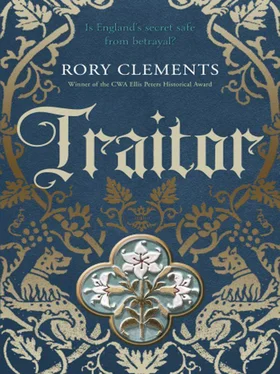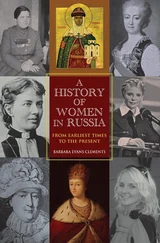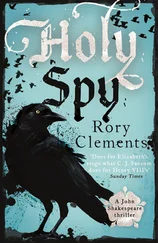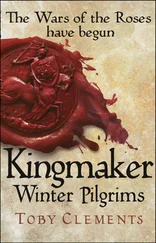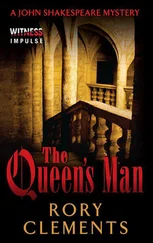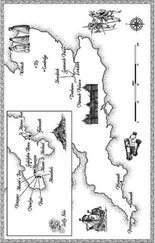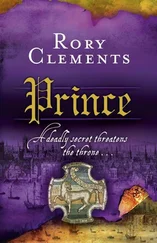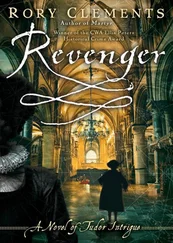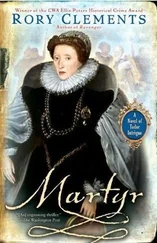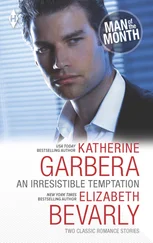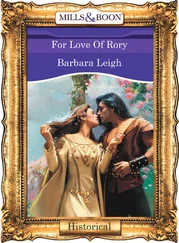Rory Clements - Traitor
Здесь есть возможность читать онлайн «Rory Clements - Traitor» весь текст электронной книги совершенно бесплатно (целиком полную версию без сокращений). В некоторых случаях можно слушать аудио, скачать через торрент в формате fb2 и присутствует краткое содержание. Год выпуска: 2012, ISBN: 2012, Издательство: John Murray, Жанр: Исторический детектив, на английском языке. Описание произведения, (предисловие) а так же отзывы посетителей доступны на портале библиотеки ЛибКат.
- Название:Traitor
- Автор:
- Издательство:John Murray
- Жанр:
- Год:2012
- ISBN:9781848544314
- Рейтинг книги:5 / 5. Голосов: 1
-
Избранное:Добавить в избранное
- Отзывы:
-
Ваша оценка:
- 100
- 1
- 2
- 3
- 4
- 5
Traitor: краткое содержание, описание и аннотация
Предлагаем к чтению аннотацию, описание, краткое содержание или предисловие (зависит от того, что написал сам автор книги «Traitor»). Если вы не нашли необходимую информацию о книге — напишите в комментариях, мы постараемся отыскать её.
Traitor — читать онлайн бесплатно полную книгу (весь текст) целиком
Ниже представлен текст книги, разбитый по страницам. Система сохранения места последней прочитанной страницы, позволяет с удобством читать онлайн бесплатно книгу «Traitor», без необходимости каждый раз заново искать на чём Вы остановились. Поставьте закладку, и сможете в любой момент перейти на страницу, на которой закончили чтение.
Интервал:
Закладка:
Topcliffe bared his teeth. His lips were foam-flecked. ‘Derby and all his clan are traitors — as are all the Shakespeares. We’ll do for them all, Mr Ickman!’
Shakespeare shrugged his shoulders. There was nothing more to be gained here. He knew Topcliffe well enough to know that he would merely lash out with his silver-tipped blackthorn cane before ever he answered any of his questions. He had already done much harm to Shakespeare and his family. The detestation was mutual. There was nothing more to be discovered about the white dog, but he had learnt something about Ickman this day. He ignored Topcliffe and threw a look of cold scorn at Ickman.
‘I have learnt what I wanted. I now know you, Ickman. You and your family are what I had come to believe you were: common felons, hired assassins. Trust me, the eyes of the law are on you now. You will be brought low.’
Yet even as he spoke the words, they sounded hollow. Without Sir Robert Cecil, he had no power against a man such as this.
Ickman and Topcliffe looked at each other and laughed, then Ickman turned to his serving man.
‘Remove this object,’ he ordered, nodding in Shakespeare’s direction. ‘He pollutes my air.’
Chapter 49
Jane served a supper of bream fried in butter, with fresh manchet bread. They sat around the table in the kitchen at Shakespeare’s large home in Dowgate: Shakespeare, Boltfoot, Andrew, Jane and the girls, Grace and Mary. Baby John Cooper was close by, asleep in a cot.
It was a fine, large house, built close to the river by the late father of Andrew and Grace Woode, and run as a school for the poor boys of London until the plague and other circumstances forced its closure. Now its future was uncertain.
At the table, the younger children prated merrily and wanted to know all about the great adventures in Brittany. Boltfoot was like a lovesick swain, touching hands with Jane at every opportunity, surreptitiously, as though he somehow thought no one would notice. It should have been a joyous occasion, but Shakespeare felt the darkness of Joshua Peace’s fears and his own suspicions clouding all. What in God’s name did Topcliffe have to do with all this? Nothing made sense, except for one thing: he knew that the white-haired dog of a man would do anything to harm him or those he loved.
He thought, too, of those brutish men who followed Topcliffe, his band of pursuivants, who wore the Queen’s escutcheon, and who had the power to seek out and arrest priests and those who harboured them. They considered such hunts to be sport, the tormenting of men, women and children more satisfying than the chasing of stags or otters. Among their number was one Thomas Fitzherbert, yet another of that difficult clan that included the Papist traitors, and one James Fitzherbert, until recently tutor of St John’s, Oxford. He had said he despised his treacherous, exiled Catholic cousins, Thomas and Nicholas. Well, that was possible enough.
But what if he was close to the other Thomas, the one who followed like a slavering pup in the trail of the killing dog Topcliffe? What if Topcliffe and Thomas Fitzherbert, pursuivant, had begged or bribed James Fitzherbert, tutor, to assist in bringing ruin upon Andrew Woode and despair upon the house of Shakespeare? No man had a better chance to daub paint across a painting of the Queen and across the gown and hands of a scholar in his care. And if he was innocent, why was he no longer at the college?
Shakespeare observed Andrew. The boy was taciturn. He had hoped to see Ursula again, but Frank Mills had sent word that she had disappeared from the house at Chevening, stealing a horse into the bargain. They would clearly never see her again. But there was more than that to Andrew’s dark mood. Shakespeare could see that he was finding it difficult to adjust to life away from the army, and he was unhappy that the affair at Oxford had not been resolved.
‘You will not be hanged, Andrew,’ he had told the boy after his meeting with Cecil. Now he repeated the pledge.
‘Are you certain? Did Cecil say as much?’
‘He does not wish you hanged and I will not allow it. Besides, I have a powerful suspicion who was behind it.’
How, though, would he prove it?
Even though fires were lit, the house was cold and unwelcoming. Chill air whipped off the Thames, through the gaps between the panes and under the doors. The family ate enough, said prayers and were in their beds by nine of the clock. Much remained unresolved, especially Andrew’s future. Shakespeare wished him to return to Oxford, but he could tell that the boy had other ideas. Perhaps he was right: the confined world of the scholar might be too suffocating for him now.
In bed, by the light of a single candle, Shakespeare unfolded a letter. It had been handed to him by Cecil before their parting that morning. It was from Eliska.
‘She asked me to give this to you if anything happened to her.’
Shakespeare had hesitated before accepting it.
‘Take it, John,’ Cecil insisted, pushing it towards him.
Now he looked at the letter and thought of the last time he had seen her alive and of the burial at sea they had given her. He wished very much to close his heart to her, to think of her no more. But here was the letter.
His hands hesitated, then opened it. He did not wish to read her confession to murder: that was too much to ask of a man. His reason dissolved like sugar in wine when he tried to make sense of her actions.
As he started to read, the candlelight guttered in the draught and seemed to shift the words, as though they had life.
‘ John, if you are reading this letter, it means you have survived and I have died. My sadness is past. We met at a place and time where our joy could only ever be fleeting. I knew you could never be mine, not truly, for your love resided elsewhere and I was set on a course that could not be altered and which, I knew, you would never countenance, not in its entirety .
‘ By the time you receive this, I will have explained to you about my father and his treatment by the Church corrupt. He was the finest man that ever lived and he was my life. You came closer to him than any man I have ever known. Just as I now know you were prepared to sacrifice your career and reputation in your quest for your boy, so I vowed to do all in my feeble power to further the cause my father fought for, for so many years. I think you probably now know what it involved. I will not attempt to justify all I have done, not here. Nor will I ask forgiveness, for I believe I have done no wrong. You will disagree with this, but perhaps one day you will find it in your heart to understand .
‘ And so I bid you farewell. I would ask you to pray for me, and I will give thanks to God that you have lived through our great adventure. Fight for the right, John, with no quarter given. Yours, in love, Eliska .’
He had not known the depth of her passions. She had concealed them well. Except for once, one night in Lancashire when, unbeknownst to her, he had noted her tears. Now at last he began to understand why she wept.
What was less easy to understand was why she had invited death on the battlements of Fort El Leon. Why had she continued to wave her pathetic yellow flag, long after the need for it had passed? And then he began to realise: it was the same thing that had driven her all this time since her father’s killing; it was what made her come to Lathom House and then to Brittany, into the very maw of death. Just one word: defiance .
Shakespeare read the letter one last time, then held it to the candleflame and watched as it flared up and fluttered down in black ashes to the floor of his chamber.
He sniffed the air. He had slept only fitfully and was half awake. The room was utterly dark and there was a smell of burning. He did not move from the warmth of his bedclothes. All he wanted was to sleep. The smell must be the ashes of Eliska’s letter.
Читать дальшеИнтервал:
Закладка:
Похожие книги на «Traitor»
Представляем Вашему вниманию похожие книги на «Traitor» списком для выбора. Мы отобрали схожую по названию и смыслу литературу в надежде предоставить читателям больше вариантов отыскать новые, интересные, ещё непрочитанные произведения.
Обсуждение, отзывы о книге «Traitor» и просто собственные мнения читателей. Оставьте ваши комментарии, напишите, что Вы думаете о произведении, его смысле или главных героях. Укажите что конкретно понравилось, а что нет, и почему Вы так считаете.
